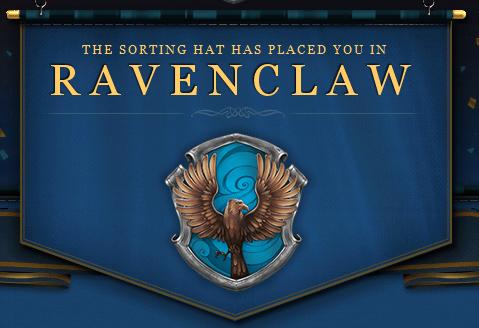
Another post about my roommate. (Her name is Zoe, by the way. She says hi. She’s pretty cool.)
A few things to clarify before I point out how Zoe is a great example of Scribner’s metaphors:
- Zoe and I grew up together. (So you understand how well I know her life)
- Zoe is a Ravenclaw. (As in Harry Potter, duh.)
- Zoe was known as “a smart kid” by the majority of people in our high school
We were talking about Harry Potter houses today, particularly about how much she hates when people assume they are part of Ravenclaw because they consider themselves smart. I can’t help but think of Scribner’s metaphors in this situation. For Zoe and the majority of my friends in high school, being literate (or as far of they were concerned, “highly literate”) was what made them more important and more powerful than others in my school, much like Scribner’s metaphor of “Literacy as Power.” The fact that another person would intrude on that, try and take some of this power, is offensive in this case. For a Ravenclaw, knowledge and creativity are everything, and with it, they are equipped with special skills above others. This is often recognized, like how Zoe, when her name was mentioned, was immediately called smart: she could do what others could not because of her literacy, as with the “Literacy as a State of Grace” metaphor. Finally, because our high school was highly competitive, the parameters for what put “the smart kids” above the rest of the class were always changing. Like the “Literacy as Adaption” metaphor explains, it is difficult to pin down what literacy is depending on the context. In this case, Zoe was “a smart kids” because she adapted with the ever-rising standard of literacy in order to be part of this group.

